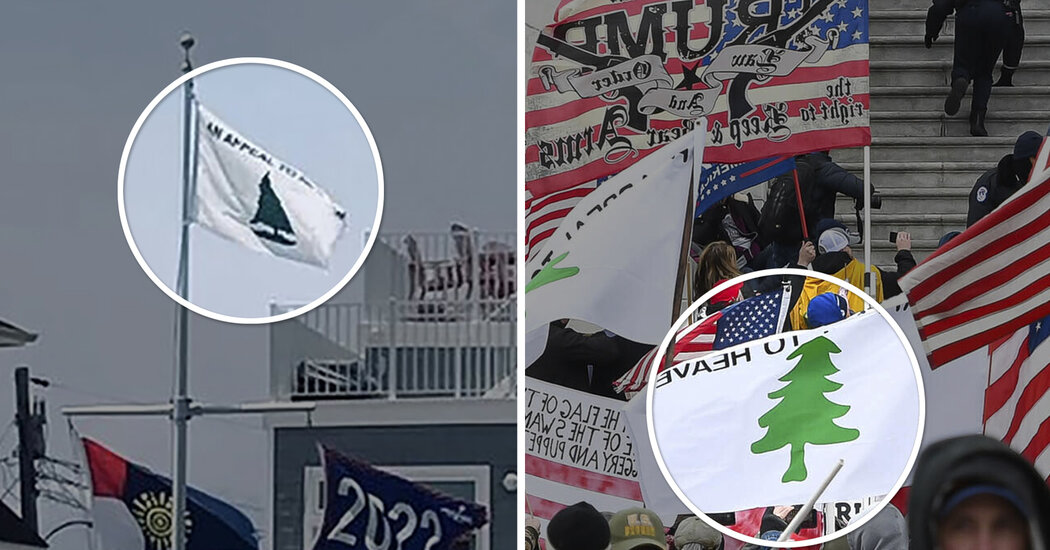The justice’s beach house displayed an “Appeal to Heaven” flag, a symbol carried on Jan. 6 and associated with a push for a more Christian-minded government.
Last summer, two years after an upside-down American flag was flown outside the Virginia home of Justice Samuel A. Alito Jr., another provocative symbol was displayed at his vacation house in New Jersey, according to interviews and photographs.
This time, it was the “Appeal to Heaven” flag, which, like the inverted U.S. flag, was carried by rioters at the Capitol on Jan. 6, 2021. Also known as the Pine Tree flag, it dates back to the Revolutionary War, but largely fell into obscurity until recent years and is now a symbol of support for former President Donald J. Trump, for a religious strand of the “Stop the Steal” campaign and for a push to remake American government in Christian terms.
Three photographs obtained by The New York Times, along with accounts from a half-dozen neighbors and passers-by, show that the Appeal to Heaven flag was aloft at the Alito home on Long Beach Island in July and September of 2023. A Google Street View image from late August also shows the flag.
The photographs, each taken independently, are from four different dates. It is not clear whether the flag was displayed continuously during those months or how long it was flown overall.



I was curious about the flag, so did a little reading. Apparently the “Appeal to heaven” is referring to John Locke’s writings regarding the right to revolution:
(Second Treatise of Civil Government. John Locke)
Locke’s contention was that no man had inherent power to regulate or restrict divine arbitration in civil affairs. Even in dire circumstances, he alleged, natural rights transcended the political process.